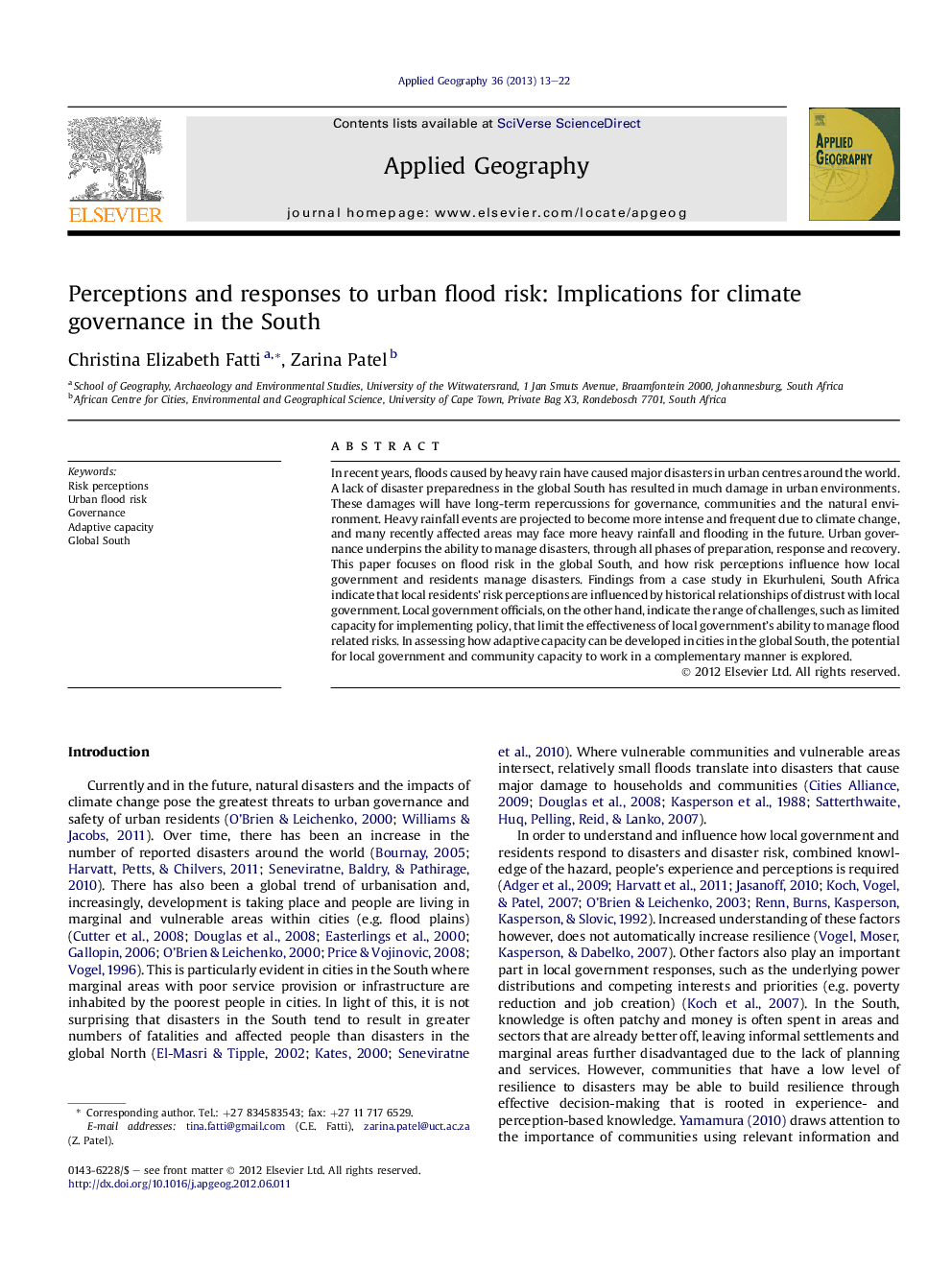| Article ID | Journal | Published Year | Pages | File Type |
|---|---|---|---|---|
| 83360 | Applied Geography | 2013 | 10 Pages |
In recent years, floods caused by heavy rain have caused major disasters in urban centres around the world. A lack of disaster preparedness in the global South has resulted in much damage in urban environments. These damages will have long-term repercussions for governance, communities and the natural environment. Heavy rainfall events are projected to become more intense and frequent due to climate change, and many recently affected areas may face more heavy rainfall and flooding in the future. Urban governance underpins the ability to manage disasters, through all phases of preparation, response and recovery. This paper focuses on flood risk in the global South, and how risk perceptions influence how local government and residents manage disasters. Findings from a case study in Ekurhuleni, South Africa indicate that local residents' risk perceptions are influenced by historical relationships of distrust with local government. Local government officials, on the other hand, indicate the range of challenges, such as limited capacity for implementing policy, that limit the effectiveness of local government's ability to manage flood related risks. In assessing how adaptive capacity can be developed in cities in the global South, the potential for local government and community capacity to work in a complementary manner is explored.
► Perceptions can highlight gaps in knowledge sets used to manage floods. ► Poor governance limits the ability to build resilience and adaptive capacity. ► Development issues can cloud municipal and community perceptions of flood risk.
